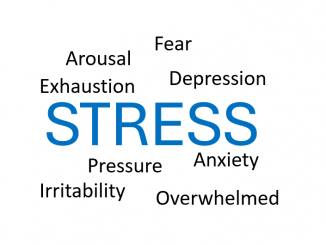There are many well-established links between stress and human behaviour, and it is a phenomenon that I see regularly in my Counselling clients.
I can also see this in myself. When I look back at my decision-making and behaviours during difficult times I can recognise that I wasn’t the best version of myself.
I’ll be honest, this is something I lament.
Stress leads us to fall into the emotional processing areas of the brain and away from the high-level/reasoning areas where we make good healthy decisions that help us feel good about ourselves.
Ironically, stressful times put us in a headspace more likely to continue eroding our safety, increasing our stress, negatively affecting our relationships, and damaging our self-esteem/self-worth.
It is the classic vicious cycle.
Now there’s another new scientific link established between the effects of stress and human behaviour, this time in children.
Researchers in Spain have measured the concentration of the stress hormone Cortisol in children’s hair and established a link to major behavioural problems.
Ane Arregi-Otxotorena, a researcher in the UPV/EHU’s Faculty of Psychology, says the hair samples are telling because that’s where the effects of longer-term stress are best established.
“Cortisol is usually present in the blood, saliva and urine, among other places, and indicates a momentary level of cortisol; however, cortisol accumulates in the hair, and that points to a degree of stress in the longer term, in other words, chronic stress.”
The research concluded that major behavioural problems are related to higher levels of Cortisol in the hair.
In addition, “we saw that maternal stress is related to children’s behavioural problems and maternal stress can also influence children’s cortisol levels through their behavioural problems.” Arregi explained.
How to break this pattern of stress and behavioural impacts? Therapy is a great place to start. Self-care is entirely important and this could include practices like meditation, breath work, exercise, yoga, hobbies etc.
Potential improvements to the environment that you live in, in particular in making efforts to have safer and more healthy interpersonal relationships can also be very helpful.



